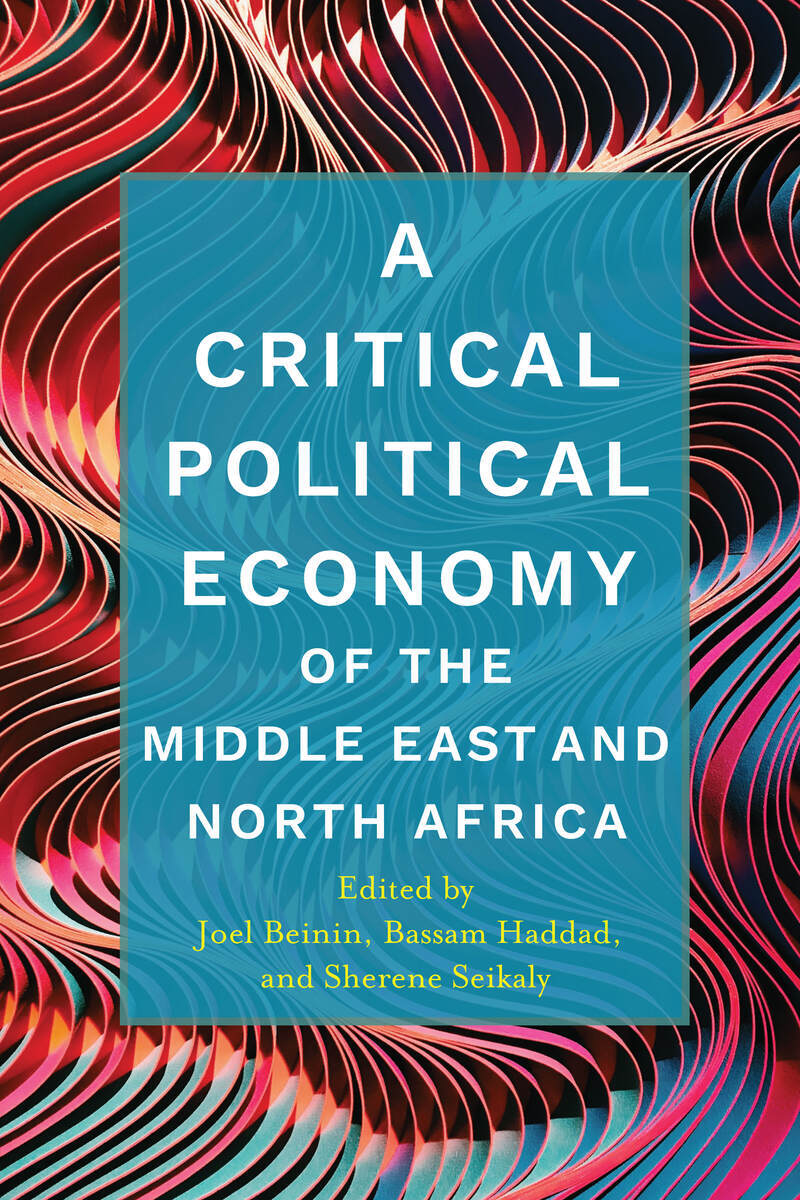Live Event: Roundtable Conversation with the Co-Editors and Contributors of
"A Critical Political Economy of the Middle East and North Africa"
AUTHORS
ABOUT THE BOOK
Available Now at Stanford University Press:
A Critical Political Economy of the Middle East and North Africa
Edited by Joel Beinin, Bassam Haddad, Sherene Seikaly
Series: Stanford Studies in Middle Eastern and Islamic Societies and Cultures
Leading scholars, representing several disciplines, contribute both thematic and country-specific analyses. Their writings critically examine major issues in political economy—notably, the mutual constitution of states, markets, and classes; the co-constitution of class, race, gender, and other forms of identity; varying modes of capital accumulation and the legal, political, and cultural forms of their regulation; relations among local, national, and global forms of capital, class, and culture; technopolitics; the role of war in the constitution of states and classes; and practices and cultures of domination and resistance.
Visit politicaleconomyproject.org for additional media and learning resources. Email us at info@politicaleconomyproject.org if you wish to review the book.
Reviews
"A thorough and timely collection of essays by some of the top practitioners of Middle East political economy, this book lays bare the human insecurity that is at the root of much of the discontent in the region."
—James Gelvin, University of California, Los Angeles
"This new canonical text will open pathways for research and make the job of educators infinitely easier by reasserting the enduring value of political economy. For too long scholarship has been enchanted by the shibboleths of orientalism and modernization theory—now there is a better way. A tour de force synthesis."
—Brandon Wolfe-Hunnicutt, California State University, Stanislaus
Table of Contents
Introduction: "Introduction," Joel Beinin
1. "Landed Property, Capital Accumulation, and Polymorphous Capitalism: Egypt," Kristen Alff
2. "State, Market, and Class: Egypt, Syria, and Tunisia," Max Ajl, Bassam Haddad, and Zeinab Abul-Magd
3. "Ten Propositions on Oil," Timothy Mitchell
4. "Regional Militaries and the Global Military-Industrial Complex," Shana Marshall
5. "Rethinking Class and State in the Gulf Cooperation Council," Adam Hanieh
6. "Capitalism in Egypt, Not Egyptian Capitalism," Aaron Jakes and Ahmad Shokr
7. "State, Oil, and War in the Formation of Iraq," Nida Alahmad
8. "Colonial Capitalism and Imperial Myth in French North Africa," Muriam Haleh Davis
9. "Lebanon Beyond Exceptionalism," Ziad M. Abu-Rish
10. "The US-Israeli Alliance," Joel Beinin
11. "Repercussions of Colonialism in the Occupied Palestinian Territories," Samia Al-Botmeh



